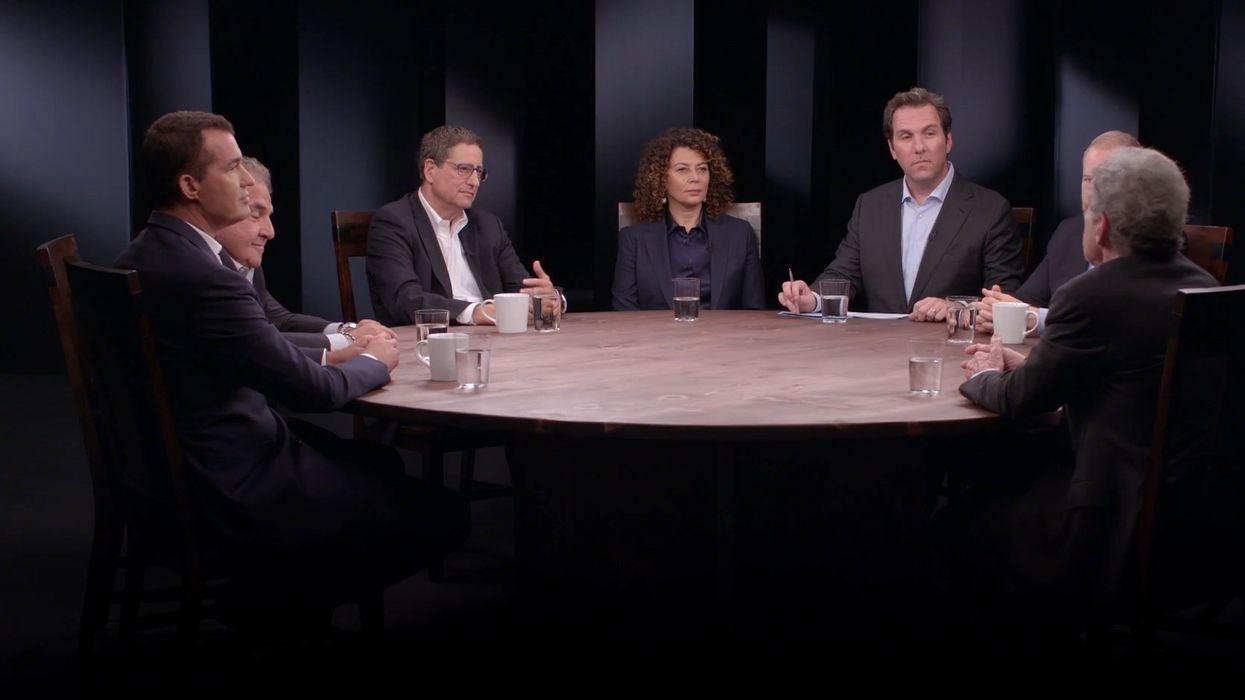The 7 Most Powerful People In Hollywood Predict The Future
What happens when you get some of the most powerful people in Hollywood together in a room?

The Hollywood Reportersought to answer this question when they gathered seven key executives for a "studio chief summit." Attendees included Warner Bros. chairman Toby Emmerich, Paramount CEO Jim Gianopulos, Disney co-chair Alan Horn, Universal chairwoman Donna Langley, Sony Pictures chairman Tom Rothman, Amazon studio chief Jennifer Salke, and Netflix head of original films Scott Stuber.
It's a hectic time in Hollywood, with the rise of multiple, competing over-the-top services, the absorption of Fox by Disney, and the news of massive development deals. These executives sat down to discuss the streaming wars, censorship, and the future of Hollywood.
Here are some main takeaways.
The atmosphere of making movies
Early on, the executives poke fun slightly at Stuber and Salke of Netflix and Amazon, streaming services that are sometimes blamed for oversaturating the movie market with the sheer level of content they produce. While Horn says a screenplay makes a good movie, Gianopulos points out that release date matters too. Elements like big-name stars aren't as impactful anymore.
Rothman says, "I wouldn't even say that the floor is low. I would say there is no floor. On the other hand, the ceiling is higher than it's ever been. Big hits are bigger. And big misses are bigger."
"I wouldn't even say that the floor is low. I would say there is no floor. On the other hand, the ceiling is higher than it's ever been. Big hits are bigger. And big misses are bigger." - Tom Rothman
Netflix's impact
The group brings up Martin Scorsese's The Irishmanas a unique example of a film that could only happen in today's market.
Scorsese famously could not get the movie made for years. It is long, it is ambitious, and it is expensive. Emmerich says no studio could expect to make the movie and "come out alive."
Netflix swooped in to finance the film for $160 million, and because of the unique way they measure their metrics, they can hope to call the film a success.
"It's never been a better time for filmmakers" - Donna Langley
Langley added, "It's never been a better time for filmmakers and storytelling and for things to find their way into the world that were getting squeezed over the last five or six years or even longer."
So it might be a bit of a trade-off -- oversaturation in exchange for a platform willing to take on more risky material.

Is the audience tired of Disney/Marvel?
One thing that's interesting to read in the executives' interactions is the gentle prodding they do at Disney's recent penchant for simply churning out live-action remakes of animated IP and their MCU.
When Horn comments that they will eventually run out of remakes, Rothman says, "Thank God for small favors."
Stuber later tries to compare comic books to Harper Lee's famous work of literature, To Kill A Mockingbird.
Rothman again chimes in, to laughter, "They are not To Kill a Mockingbird. I am sorry."
On theatrical releases
Increasingly, movies are taking a direct-to-video or direct-to-streaming path and bypassing the theatrical release altogether. Amazon and Netflix will sometimes have a project with a theatrical run, such as El Camino, The Irishman, or Late Night.
Disney and Universal are both launching streaming services, so Langley and Horn were asked whether their model would change.
"I can't speak to that," Langley says. "But we all know that it's a nonstarter for the companies to have the conversation with exhibition. Our agendas are not aligned at all."
Horn says Disney is "committed" to the theatrical model.
Both agree that consumer desires will dictate any changes they need to make.
What's next? Check out the full article
The full article includes video interview portions as well that you should definitely check out.
What do you think of the direction Hollywood has taken in recent years? Are you concerned about the industry? Let us know in the comments!
Source: The Hollywood Reporter











